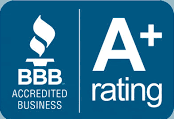As a homeowner, one of the most stressful situations you may face is dealing with unexpected property damage, whether from a fallen tree, a neighboring fire, or flooding. These events are not only stressful but can also lead to disputes concerning property lines and insurance coverage. Understanding where your insurance responsibilities lie in these scenarios is crucial to ensure you have the right financial protection. This blog will address common questions about homeowners insurance and property boundaries to help ease potential concerns.
Understanding Tree Damage Responsibility
When a tree from your neighbor’s property falls onto your home due to a storm, it is generally your own homeowners insurance that covers the damage. If the tree was already dead or in poor condition and your neighbor was aware of the risk, their insurance may become liable. It's essential to assess tree health regularly and communicate any concerns with your neighbors proactively.
Dealing with Fire Damage from Neighboring Properties
Homeowners insurance typically covers fire damage that spreads to your home from a neighboring property. However, if the fire was caused by negligence—such as an unattended candle or faulty wiring—the insurance provider may pursue reimbursement from the responsible party's insurance policy. Ensuring proper maintenance and safety measures in and around your home can mitigate such risks.
Challenges with Flooding from a Neighbor's Property
Flood damage poses a unique challenge as proving negligence due to poor drainage, malfunctioning downspouts, or landscaping changes can be difficult. Homeowners insurance typically does not cover flooding, so you may need a separate flood insurance policy for comprehensive coverage. Consider discussing potential water drainage issues with neighbors to prevent disputes and potential damage.
Shared Fence Repair Costs Explained
If a shared fence is damaged in a storm, both homeowners are generally responsible for sharing the repair costs. Nevertheless, if one homeowner's actions directly caused the damage, they might need to cover all expenses. Established agreements and clear communication between neighbors can prevent conflicts when repairs are needed.
The Insurance Claims Process and Subrogation
When damage to your property is caused by a neighbor’s actions, the insurance claims process usually involves your insurer covering the costs first. If negligence is involved, your insurer may use subrogation to seek reimbursement from the responsible party’s insurance. If negligence is not established, your policy would typically cover the damages without pursuing the neighbor's insurance.
It is crucial for homeowners to regularly review their insurance policies and consider additional coverage options, like flood insurance, for enhanced protection. For those looking to ensure complete peace of mind, consulting an insurance professional can help clarify specific coverage details pertinent to your situation.


